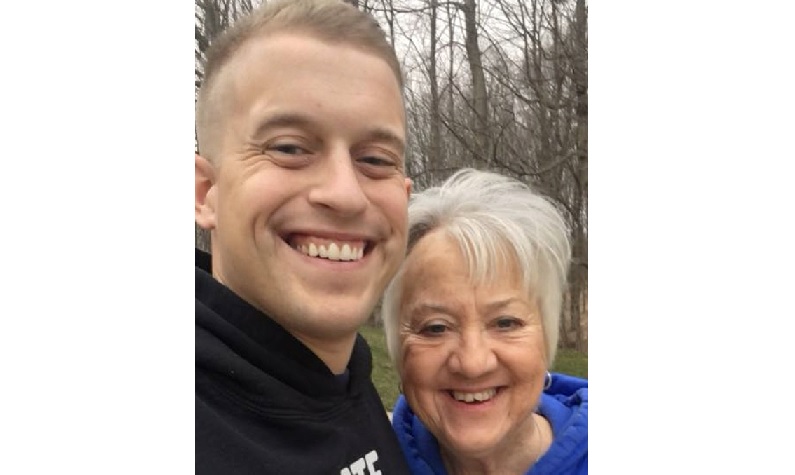Nathan Hynek and his wife generally don’t do anything special for Valentine’s Day. “I prefer to give acts of love throughout the year,” he said. That’s obvious. Whether it’s helping someone as a veteran police officer or saving the life of a family member by donating his kidney, Hynek’s a giver.
Tuesday is Valentine’s Day. It’s also National Donor Day – a day to recognize people like Hynek who’ve given the gift of life through organ donation and a day to spread awareness about how organ and tissue donations save and heal lives.
At the age of 19, Nathan had to make a very big decision.
His aunt’s health was failing. Jackie Kray’s doctors determined that untreated high blood pressure was causing her kidneys to fail. Facing dialysis, she needed a kidney transplant.
“I was the only one in the family who was a match,” Hynek said. He decided to become a living organ donor and save Kray’s life.
Living organ donation occurs when a healthy, living person donates an organ or a part of one for transplant into another person. Most living donors are kidney donors or partial liver donors. Their decisions save thousands of lives every year and spare many from years of dialysis while awaiting a transplant from a deceased donor.
“I felt it was my duty,” said Hynek, who knows a bit about duty and service to others. He’s a veteran police officer, currently a patrol officer with the Northern Indiana Commuter Transportation District, which operates the South Shore Line.
In 2013, after all medical tests were completed and Hynek was deemed a medical match, he and Kray checked in to Northwestern Memorial Hospital in Chicago for their recovery and transplant surgeries. It was a success.
“I rarely think about the pain after donating,” Hynek said. “What I do think about is all the time I got to spend with her after the donation. I’d do it again in a heartbeat.”
Kray’s life ended in 2018 at age 71 but was extended for five years because of Hynek’s decision to be a living donor.
“If you’re capable to donate, why not? It’s only a few weeks of being down and recovering,” said Hynek, who along with wife Kristina and young daughter Raelyn live in Union Mills in northwest Indiana. “You only have one life to live. But so do they.”
If Hynek ever had a discussion with someone on the fence about being a living donor, he said he’d put them in his shoes. “I’d ask them, ‘If a family member or loved one needs an organ and you’re the only one who can help, why wouldn’t you?’”
National Donor Day
Facts about organ donation
Frequently asked questions about donation and transplantation

